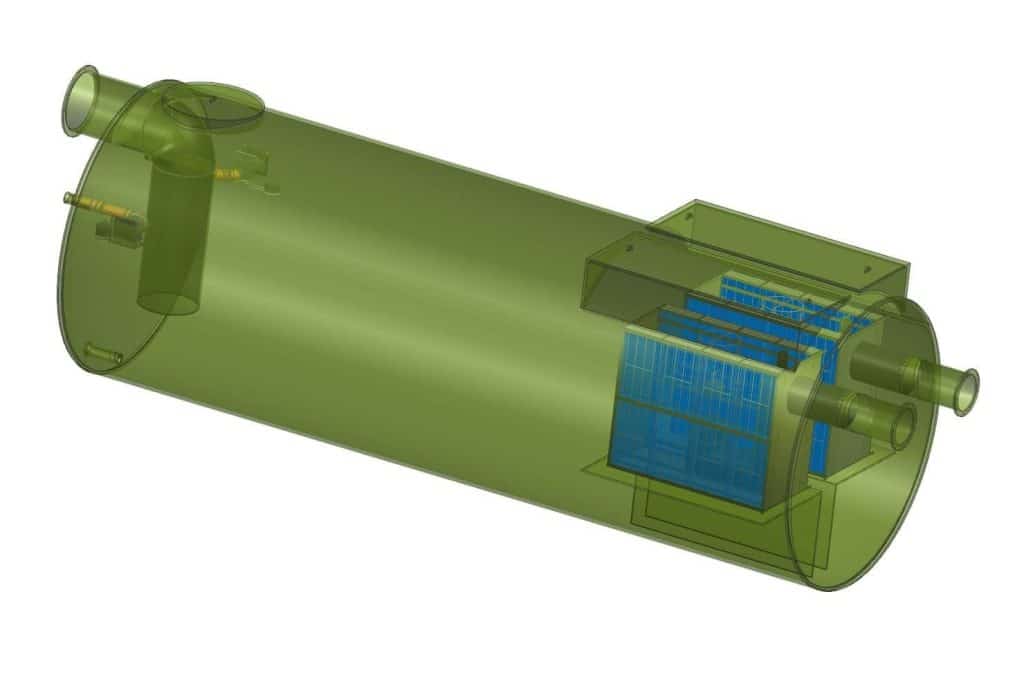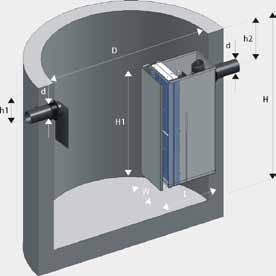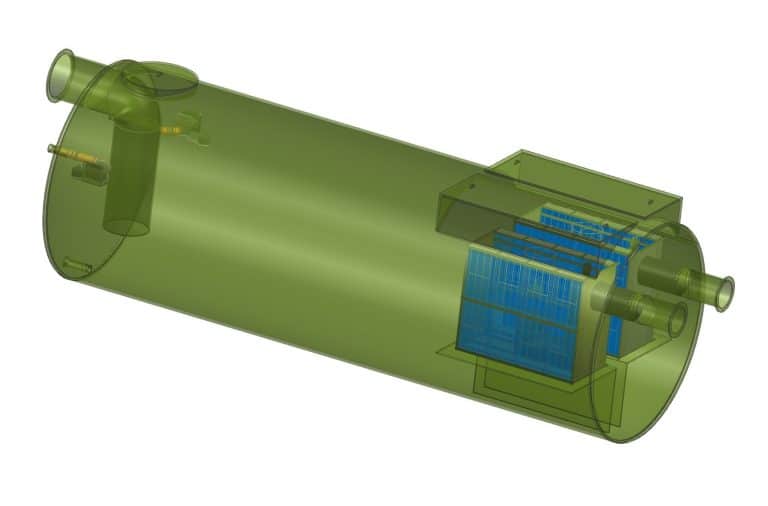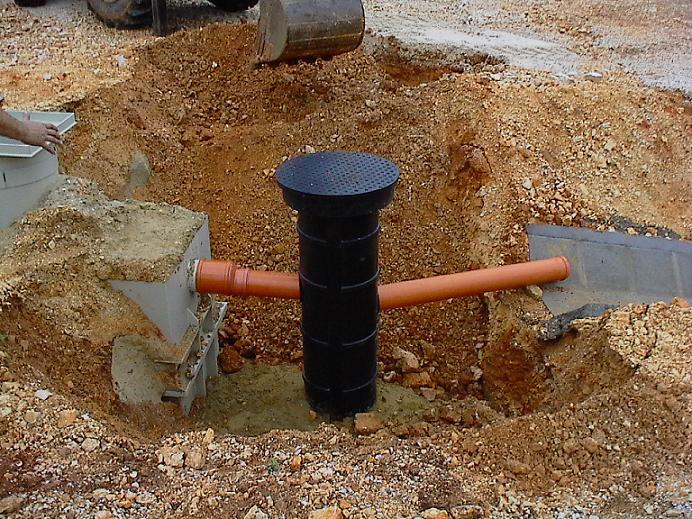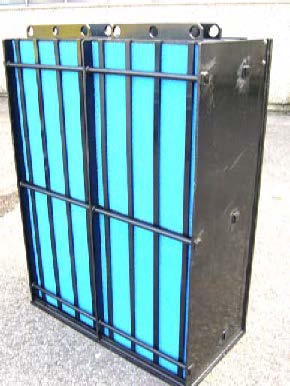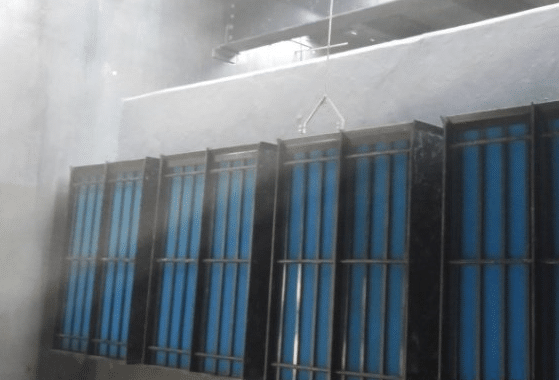Did you know How to Choose a Below Ground Oil Water Separator? or that picking the right underground oil water separator is key for your business? It affects both your environmental compliance and how well you operate. Whether you run a quick-lube station or a vehicle repair shop, the right oil water separator is vital. It helps you follow the rules and manage industrial wastewater better, reducing harm to the environment.
When picking a separator, you need to think about a few things. These include how well it separates oil from water, the technology it uses, and how easy it is to maintain over time. As you aim to meet regulations like those in King County, making a smart choice can save you money and improve your performance.
Key Takeaways
- Choosing the right oil water separator is key for compliance and efficiency.
- Businesses like quick-lube stations and repair shops are primary users of these systems.
- Separation efficiency ratings and maintenance costs are critical factors to consider.
- Regular inspection is essential; guidelines recommend checking oil/water separators every six months.
- Advanced separation technologies can achieve exceptional oil removal efficiencies, exceeding typical standards.
- Custom solutions may be necessary for industries with unique needs, such as marinas and truck washes.
Understanding the Importance of Oil Water Separators
Oil water separators are key to keeping industrial wastewater clean. They remove oil and other pollutants from water. This is crucial for industries like steel, mining, and car services.
Choosing the right oil water separator is vital. It helps businesses follow environmental rules and protect water sources.
What Are Oil Water Separators?
Oil water separators separate oil from water in industrial settings. They use gravity, coalescing, and centrifugal forces to do this. The type of separator needed depends on the wastewater’s contaminants.
For example, gravity-based separators let oil float to the top. Water then settles at the bottom.
Why Are They Needed for Compliance?
Oil water separators are essential for following environmental laws. Industries must meet strict standards for oily wastewater. Untreated wastewater can harm the environment and cost companies dearly.
By using these separators, businesses can avoid fines and keep their reputation intact. It also makes operations more sustainable.
Applications in Various Industries
Oil water separators are used in many fields, like food processing and power generation. They help treat wastewater before discharge. This is important for industries that use water in their processes.
These separators can be used alone or with existing systems. They are a smart investment for saving money in the long run.
Key Features to Look For
When picking a below ground oil water separator, some features matter a lot. The separation efficiency ratings show how well the device cleans wastewater. It should remove all oil droplets to meet environmental rules.
Separation Efficiency Ratings
The separator’s success depends on its ratings. Top models can get discharge levels under 5 ppm, meeting strict standards. They use advanced coalescing plates to catch oil droplets as small as 20 microns.
Coalescing Technology Benefits
Coalescing technology makes oil water separation better. It combines small oil droplets into bigger ones, making them easier to remove. This leads to cleaner water, showing a company’s care for the environment.
Material and Construction Quality
The quality of materials and construction is key for a separator’s life. Good systems come with five-year warranties on parts and work, and 30 years against corrosion. They follow UL58 and UL1746 standards for durability. Choosing the best materials means the separator can handle tough environments and last long.
Compliance with Environmental Regulations
Following environmental rules is key for industries with oily wastewater. In North America, strict rules protect ecosystems. The limit for hydrocarbon discharge is 10 PPM, a rule businesses must follow to protect the environment and avoid legal trouble.
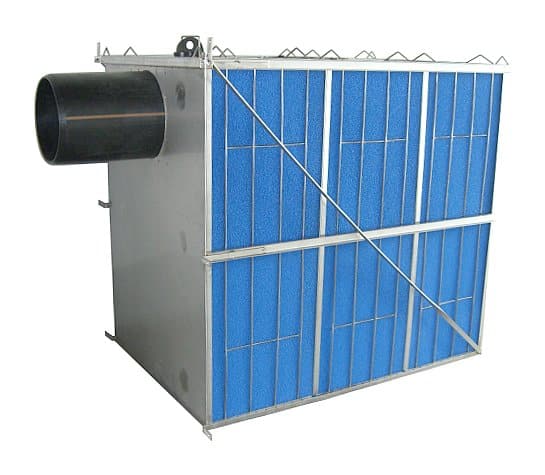
North American Hydrocarbon Discharge Limits
Understanding the rules for hydrocarbon discharge is vital. Facilities handling oil must follow strict rules. Oil water separators (OWS) help, but all oil activities need to comply, showing the need for the right equipment.
Importance of Meeting 10 PPM Standards
Reaching the 10 PPM standard is crucial for environmental care. A small amount of oil can pollute a lot of water. Coalescing plate oil water separators are a good choice for meeting these standards and reducing harm to the environment.
Freytech’s 5 PPM Guarantee
Freytech Inc. leads with separators that promise a 5 PPM guarantee. This promise helps businesses meet and exceed environmental rules. Freytech’s units are customizable and handle different needs, making them useful in many fields. They help companies work more efficiently and protect the environment.
How to Choose a Below Ground Oil Water Separator? Types of Below Ground Separators
It’s important to know about the different types of below ground separators. They help manage oil and water in various settings. Each type meets specific needs and requirements.
Enhanced Coalescing Separators
Enhanced coalescing separators use advanced tech for better separation. They work well in places with lots of oil, making them great for handling different types of wastewater.
Conventional Separators
Conventional separators have a basic design with a 10:1 ratio. They use simple baffle systems to separate oil from water. While they work for many businesses, they might not meet strict rules. Companies needing better efficiency and lower costs often find them lacking, especially when facing rule challenges.
Custom Solutions
Custom solutions are made to fit specific business needs in oil-water separation. They include special designs and materials to improve treatment. Businesses can get the best results and avoid problems with not following rules. Custom solutions are perfect for places with unique needs.
Installation and Maintenance Considerations
Getting an oil separator installed right is key for top performance and following environmental rules. Hiring pros for the job makes sure everything is done correctly. They pick the right model based on your facility’s needs.
Professional Installation Services
Choosing professional installers means your oil water separator will work well with your system. They make sure the pipes are in the right spot. This is important for the system to work right.
They also check that the vault is sealed and pipes are tight. This stops leaks and keeps things clean.
Routine Maintenance Requirements
After it’s installed, keeping up with maintenance is crucial. Regular checks and cleanings keep it running smoothly. It’s important to have a plan for upkeep.
This plan should include getting rid of water properly. Doing this stops oil from building up and keeps the separator working well.
Troubleshooting Common Issues
Even with good care, problems can still happen. Knowing about issues like sludging and oil buildup is important. This lets you fix problems fast.
Staying updated on maintenance helps solve problems before they get worse. This keeps your separator working well.
Cost Factors in Choosing a Separator
When picking an oil water separator, businesses must think about several cost factors. They need to match the separator with their operational needs and follow regulations. Knowing both the upfront costs and long-term savings is key to managing expenses on separation systems.
Initial Costs vs. Long-Term Savings
At first glance, cheaper separators might seem appealing. But, it’s important to look at long-term savings too. A separator that works well can save money in the long run. It might cost more upfront, but it can save on maintenance and avoid fines for breaking environmental rules.
Comparing Different Models
Businesses should compare different separators based on performance, durability, and upkeep. This helps understand each model’s true value. For example, efficient systems like multiple angle plate separators might cost more at first. But, they save money over time because they work better.
Evaluating Manufacturer Reputation
Checking the manufacturer’s reputation is vital. Choosing a trusted company like Freytech means getting high-quality separators that meet strict standards. A good reputation means reliability, great customer service, and performance guarantees. This gives peace of mind and justifies the initial investment.

Why Choose Freytech Inc.
Freytech Inc. is a leader in the oil water separator market. It focuses on advanced technology and top-notch performance. They offer nine different models to fit various industry needs.
These separators can remove up to 5 PPM of non-emulsified oils and 0.1 PPM of emulsified oils. This high efficiency helps meet strict regulations and keeps operations running smoothly. It solidifies Freytech’s strong reputation.
Advanced Technology for Superior Performance
The EcoLine B and EcoSorp models are at the forefront of oil-contaminated wastewater handling. They cut down on maintenance and disposal costs. The coalescing media is reusable, making it a sustainable choice for industries.
This focus on engineering shows Freytech’s commitment to products that go beyond environmental standards. They aim to exceed expectations in every way.
Proven Track Record in the Industry
Freytech Inc. is known for its reliability and efficiency. Their separators play a big role in reducing waste and costs for clients. They offer personalized consultations to help improve wastewater management.
For more information, contact Freytech at +1 (305) 372-1104. Experts are ready to provide advice and show how their solutions can meet your needs.

